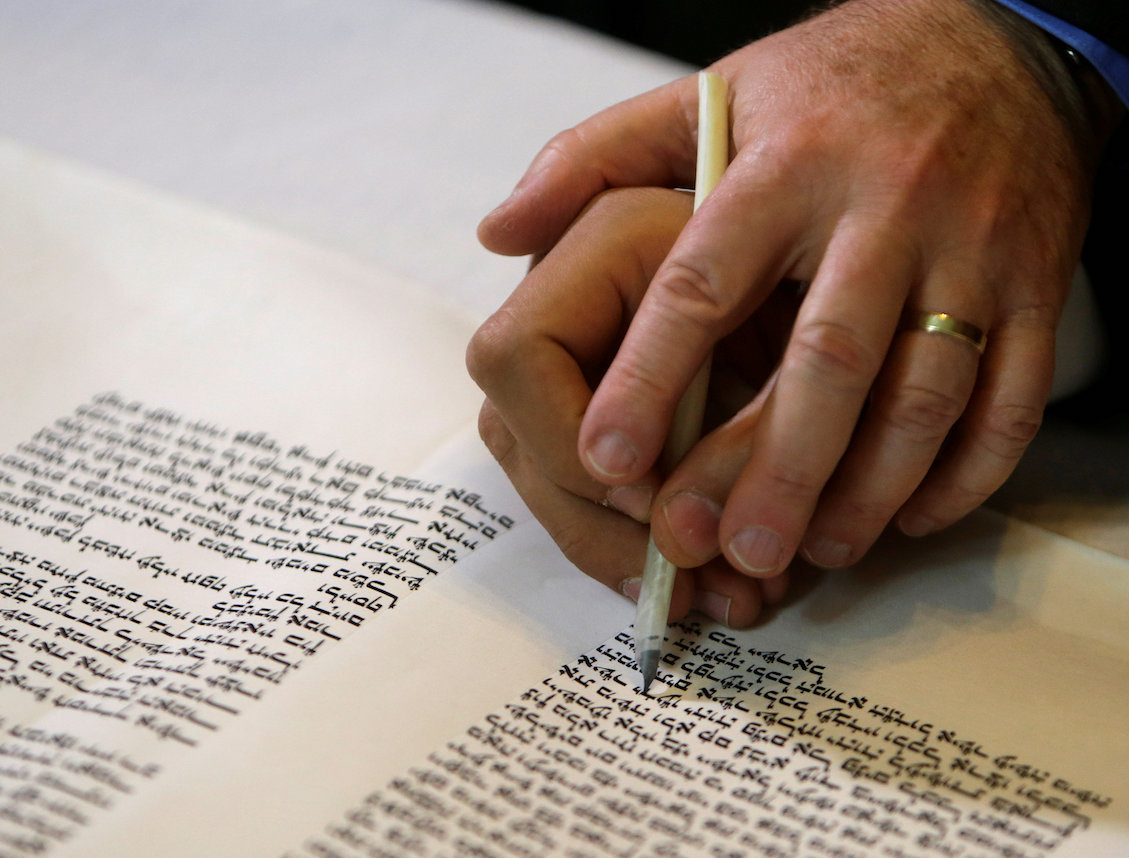 Photo by REUTERS/David W Cerny
Photo by REUTERS/David W Cerny If only the whole Jewish world knew, and lived by, this one comment of Rashi. If only that…then the Jewish people would be kinder, more ethical and more dignified.
Let me rev this up by saying that one of my recent and current pet peeves (which is saying it lightly. What I am about to describe is a source of tremendous pain and anguish for me about Jewish living) is the discourteousness (again, to say it lightly) exhibited by some who are punctilious about ritual Jewish observance. In my mind, I have thought of this as “ugly Judaism.” A Judaism which valorizes, and pays attention to, halakhic/legal/ritual detail, while eschewing (sometimes simultaneously) basic politeness and rudimentary ethical comportment. Myriad examples jump to mind. Jews who are so careful about not touching a person of the opposite gender such that it impacts where they sit on an airplane, but seem to jettison all expressions of patient, flexible kindness when trying to meet those needs. Jews who are careful and ubiquitous when it comes to regular, obligatory prayer, and who can recite the prayers fluently and fluidly…but then resort to lashon hara (gossip, damaging speech) as soon as there is a gap in the service. Jews who are so set on venerating the Torah that they literally knock people over (and thus knock over the values of that very Torah) on the way to giving the Torah a kiss. Some might call that last example as veneration-turned-idolatry, with frenzy having replaced honor.
(I am neither a perfect Jew nor a perfect human. I try to name and efface as many of the flaws that I recognize within myself as possible. So I will accept “guilty as charged” for any of the ways in which I fall prey to the very phenomena discussed above.)
I muse about how we got to this place in Jewish sociology wherein the class of phenomena I named is so prevalent. Perhaps it should not be such a surprise. Human beings are complex and riddled with internal inconsistencies. We undermine, and betray, our own values and principles all the time—sometimes unaware and unconscious, and sometimes quite aware, but as a result of some negotiation, or rationalization, with self. But even if this is true, ought we not try to aspire to something better, something higher?
The commentary of Rashi I referenced above is his first on Parshat Mishpatim, and emerges from a pretty wonky and zoomed-in read of the text. The parsha begins with the words ואלה משפטים / V’eleh hamishpatim / “And these are the laws/statues…”. The parsha then continues with a litany of laws (making Mishpatim the parsha with the second-most number of mitzvot among all the 54 parashot, with only Ki Tetze having more). Most of those laws are related to civic life, business practices and ethical living, with rather few of them existing purely in the ritual realm. Rashi notes that all sorts of sentences in the Torah begin with the introduction of “אלה / Eleh / These…” And he notes, or suggests, a pattern: When the opening word is just Eleh, the word is meant to separate what is to come from what came before. It would be read something like “Now that we have finished that topic, these are some other things, in another category.” But when the opening word is “V’eleh” (as it is in our verse), the opposite is true: The word connects the upcoming verse(s) and concept(s) with the antecedent, as if we should read it something like “And these things, as well!”
Rashi is highlighting the import of the slim, humble, almost indiscernible vov-letter that begins the word and the parsha. Within that tiny letter is the following exhortation: lest you delude yourself into thinking that the laws about to be commanded are somehow other, or lesser, or disconnected from the “true revelation” we just had in Parshat Yitro…lest you erroneously think that all (any!) of the commandments after the initial 10 are secondary, the vov of “V’eleh” sets you straight. You thought that the Sinai moment ended last week? Hardly. It continues into Mishpatim, with no conceptual or hierarchical separation. So as you remember Shabbat and render it holy, and as you commit to monotheism and to not taking that one God’s name in vain, so too do you promise to act towards your servants with decency, and pay the damages of one you have injured, and guard your animals lest they create havoc, and ensure that your open pits do not pose a danger to unsuspecting wayfarers, and treat the stranger with empathy, and support the widow and orphan, and ease the burden of an overladen animal, and on and on and on. They, too, are part of God’s revelation to us, and expectations of us. While the latter category without the former category might be ethical humanism, I would say again that the former category without the latter is ugly Judaism.
Remember that vov, and act on it. Connect your conception of Sinai to how you hold yourself, especially while you find yourself in the midst of a ritual act. Make God’s name truly holy by having your very being be a conveyor of holiness, from the ritual to the civil, and back.
Shabbat Shalom
Rabbi Adam Kligfeld is the Senior Rabbi of Temple Beth Am in Los Angeles.






















 More news and opinions than at a Shabbat dinner, right in your inbox.
More news and opinions than at a Shabbat dinner, right in your inbox.